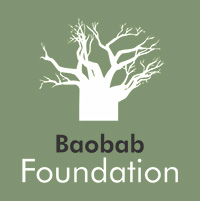We were delighted to join forces with Abalimi Harvest of Hope and have EcoProducts organic baobab powder included in their customers’ 450 organic veggie boxes. Like EcoProducts, Abalimi Harvest of Hope works towards community upliftment through development and employment as well as strongly supporting conservation and nurturing the environment through organic principles. We love the work they do and we thought you’d like to learn more about them here!

Harvest of Hope – a Community Supported Agriculture Scheme
Abalimi Bezekhaya (“Farmers of the Home”) is a non-profit development organisation based in township communities of Cape Town. Residents in these townships are supported to grow their own organic vegetables to feed their families and now some of the micro-farmers arw producing more than enough to feed their families.
Abalimi’s Harvest of Hope marketing project provides a much-needed outlet for excess produce by selling this produce on behalf of the farmers in the form of a weekly organic veggie bag scheme. Harvest of Hope is a Community Supported Agriculture scheme (CSA) contracting with farmers in advance – guaranteeing to purchase their produce and thus giving them some income security. Members of Harvest of Hope sign up for the box scheme and pay for their weekly delivery of vegetables in advance.
 Who are the micro-farmers?
Who are the micro-farmers?
The community-garden micro-farming groups are typically made up of 3 to 8 farmers. Most of the growers are women – pillars of strength in their families and neighbourhoods. But more and more men are getting involved as they see the opportunities for making a decent, dignified and sustainable living out of peri-urban farming. Typically the farm plots are the size of a few classrooms and are often located on pieces of land at schools in the townships or on council land. Take a virtual tour of some of these micro-farms. In order to supply their vegetables to the Harvest of Hope bag scheme, the micro-farmers need to have achieved high levels of quality and need to be farming according to strict organic principles. Training and support from Abalimi is helping to bring more and more eligible micro-farmers into the Harvest of Hope supply chain.
Who are the consumers/members?
Many of their members are parents who pick up their vegetables each Tuesday when they collect their children at various schools around Cape Town – but they are also expanding our deliveries to businesses and institutions. There is growing interest, and more and more people are subscribing to this socially and environmentally responsible way of obtaining healthy vegetables. The more boxes ordered on a regular basis, the more square meters can be planted and the more money is earned by people who are among the poorest in this country. Any profits that Harvest of Hope generates will go straight back to the development and support of the farmers via Abalimi, thus feeding the supply chain for ongoing growth.
Such amazing work Abalimi Harvest of Hope! Thanks to Harvest of Hope marketing coordinator Rachel McKinney and the incredible ABALIMI team for making it all happen.

